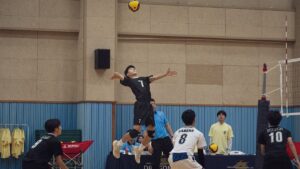The Surprising Psychology Tricks Elite Athletes Use to Stay Focused
In the world of elite sports, the difference between victory and defeat can often be measured in fractions of a second or a single point. While physical prowess undoubtedly plays a critical role, an often overlooked aspect is the athlete’s mental game. It’s a curious blend of psyche and strategy that keeps athletes at the top of their game. What tricks do these high-performing individuals use to maintain razor-sharp focus amid the pressure cooker of competition? Buckle up, because we’re about to dive deep into the intriguing psychology of elite athletes.
The Power of Visualization
Ever heard of the saying, “You become what you believe”? Well, that’s the essence of visualization. Elite athletes frequently engage in a practice known as mental imagery. This is not just daydreaming about a trophy or a gold medal; it’s a structured process where they visualize every detail of their performance. Olympic swimmer Michael Phelps, for instance, famously used visualization techniques to mentally rehearse his races long before he ever dove into a pool.
Imagine Phelps sitting poolside, eyes closed, picturing the feel of the water, the rhythm of his strokes, the taste of victory. Research suggests that mental imagery can enhance performance by allowing athletes to create neural patterns similar to actual performance. So, in effect, they’re practicing even when they’re not on the field. It’s a fascinating interplay of mind and body—one that can turn anticipation into reality.
Mindfulness and Staying Present
Now, let’s talk mindfulness—a buzzword that’s been making its rounds not just in sports, but in wellness circles too. Athletes like NBA superstar LeBron James and tennis icon Novak Djokovic have embraced mindfulness practices to enhance their performance. The crux of mindfulness is about staying present, reducing anxiety, and sharpening focus. It’s like putting on blinders to block distractions, allowing the athlete to zero in on the task at hand.
Practices such as meditation, deep breathing, and even yoga can help athletes cultivate this mental clarity. I remember a story about Djokovic, who, during crucial matches, often takes a moment to breathe and center himself. It’s that split-second pause that seems to recalibrate his focus, allowing him to return to the match with renewed intensity. Who would’ve thought that a simple breath could be so powerful?
Routine Rituals: The Comfort of Consistency
We all have our little quirks, don’t we? Well, elite athletes take this to another level. Many have pre-competition rituals that they adhere to religiously. It could be anything from a specific warm-up routine to wearing lucky socks. These rituals provide a sense of control and familiarity in an otherwise unpredictable environment.
- Brett Favre: The NFL legend had a routine of tossing a football around in the locker room before every game.
- Serena Williams: Known for her unique warm-up exercises and even her choice of hair bands!
Such rituals can help reduce anxiety and enhance focus. When things feel chaotic, returning to a familiar routine can ground an athlete, allowing them to regain that critical mental edge. It’s a bit like finding your favorite sweater on a chilly day—suddenly, everything feels just a tad more comfortable.
The Role of Self-Talk
What goes on in an athlete’s mind during competition is often just as vital as their physical abilities. Enter self-talk—the internal dialogue that can either be a source of motivation or a breeding ground for doubt. Studies have shown that positive self-talk can improve performance by boosting confidence and reducing anxiety.
Take golfer Phil Mickelson, for instance. He’s known for his upbeat self-talk, often repeating affirmations to himself before crucial shots. Something like “I’m ready” or “I trust my swing” can make a world of difference in high-pressure situations. It’s almost as if he’s his own personal cheerleader, and who doesn’t love a little pep talk now and then?
On the flip side, negative self-talk can lead to a spiral of self-doubt. Athletes have to be vigilant about their inner dialogue, as it can either propel them forward or hold them back. So, the next time you catch yourself muttering something negative, just remember: you might be the one sabotaging your own success!
The Influence of Goal Setting
Setting goals is another powerful psychological tool in the athlete’s arsenal. However, it’s not just about winning a gold medal or breaking a record. Elite athletes often set SMART goals—Specific, Measurable, Achievable, Relevant, and Time-bound. This approach gives them a clear path to follow.
For instance, a track athlete might set a goal to shave a few seconds off their personal best within a certain timeframe, breaking it down into smaller, achievable milestones. This method not only keeps them motivated but also enhances focus, as they can channel their energy toward specific objectives rather than getting overwhelmed by the big picture.
Embracing Failure
Failure—it’s a word that sends shivers down many spines, but elite athletes have learned to embrace it. They view setbacks as opportunities for growth rather than insurmountable obstacles. This mentality shifts their focus from fear of failure to a curiosity about how to improve.
Take the legendary Michael Jordan, who famously said, “I’ve missed more than 9,000 shots in my career.” His acknowledgment of failure has become a cornerstone of his success. It’s a refreshing reminder that even the best stumble and fall, but what matters is how they get back up. This resilience is key to maintaining focus and pushing through challenges.
The Importance of Team Dynamics
In sports, it’s not just about the individual; it’s also about the team. Elite athletes understand the psychology of teamwork and how it influences focus. The camaraderie, support, and shared goals create a dynamic environment that can enhance individual performance.
Consider the Golden State Warriors, whose success isn’t just down to individual talent but also their collective mindset. The players engage in open communication, share feedback, and develop trust among one another. This synergy helps each athlete stay focused, knowing they have the backing of their teammates. It’s a little like having a safety net—if you stumble, someone’s there to catch you.
Finding the Flow State
Ah, the elusive “flow state”—that magical place where athletes perform at their peak without conscious effort. It’s a state of complete immersion, where time seems to fly, and distractions fade away. Athletes describe it as being “in the zone,” and reaching this state often requires a combination of the right mindset, focus, and skill level.
To achieve flow, athletes often need to balance challenge and skill. If the task is too easy, boredom sets in; if it’s too difficult, anxiety can take over. It’s about finding that sweet spot where they can unleash their full potential. Think of it as riding a wave—timing and balance are everything.
Developing a Support System
Behind every successful elite athlete is often a solid support system. Coaches, sports psychologists, family, and friends all play vital roles in helping athletes maintain focus. These individuals provide not only guidance but also emotional support, helping to bolster an athlete’s mental game.
I recall an interview with a professional soccer player who credited his success to his coach, who not only trained him physically but also encouraged him to develop his mental resilience. This kind of support can make all the difference when the pressure mounts and focus wavers.
Nutrition and Hydration: Fueling the Mind
It’s often said that you can’t out-train a bad diet, and this holds true for mental performance as well. Nutrition and hydration play crucial roles in maintaining focus. Dehydration can lead to fatigue and cognitive decline, making it difficult for athletes to concentrate.
Research suggests that foods rich in omega-3 fatty acids, antioxidants, and whole grains can enhance cognitive function. Athletes often work closely with nutritionists to develop meal plans that optimize both physical and mental performance. It’s a bit like tuning a race car; you wouldn’t expect the engine to perform at its best on cheap fuel.
Conclusion: The Mind’s Playground
As we’ve explored, the world of elite athletics is as much about mental prowess as it is about physical skill. From visualization to mindfulness, goal setting to embracing failure, these psychology tricks are not just tools—they are lifelines that help athletes stay focused under pressure.
So the next time you watch your favorite athlete triumph against the odds, remember that their success isn’t merely a product of talent or hard work. It’s a testament to their mastery of the mind. Perhaps there’s something we can all learn from their approach—whether in sports, work, or life. Focus is a skill that can be developed, and who knows? You might just find yourself in your own version of the flow state.
And who knows? Maybe one day, you’ll be the one sharing your secrets for staying focused amidst the chaos. Now, if only I could find my own lucky socks!













